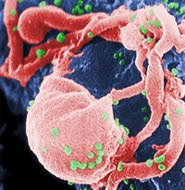A new study finds that homosexual men are twice as likely as other males to have been diagnosed with and then survive a cancer, shining a light on the unique medical risks that gay people may face. It's not the first time that researchers have noted differences in health risks linked to sexual orientation. Gay men, of course, are at higher risk of becoming infected with HIV, while lesbians may be more likely than heterosexual women to get breast cancer. Both gay men and lesbians have higher rates of tobacco use than the general population, and research has shown that lesbians drink more and are more prone to obesity than other women.
The new study adds to existing knowledge, but "there's a painful dearth of data about lesbian, gay, bisexual and transgender health in general," noted Liz Margolies, executive director of the National LGBT Cancer Network, who's familiar with the new research. In the new study, published online May 9 in Cancer, researchers examined surveys involving more than 122,000 California residents from 2001, 2003 and 2005. Among other things, the surveys asked about sexual orientation and whether the participants had ever been diagnosed with cancer. About 8 percent of the gay men in the group reported having had cancer almost double the rate among the heterosexual and bisexual men surveyed.
Lesbians didn't have a higher rate of cancer than other women, but lesbian cancer survivors were about twice as likely to report that they had fair or poor health compared to heterosexual women. The study can't say whether gays and lesbians are more likely to develop cancer in the first place, since it doesn't include people who have died from the disease or may be too ill to answer questions, stressed study author Ulrike Boehmer, an associate professor of community health sciences at Boston University School of Public Health. Experts already believe that gay men face a higher risk of anal, lung, testicular and immune-system cancers, she said. For their part, lesbians are thought to possibly be at higher risk of breast cancer, perhaps because many of them don't give birth.
You have read this article bisexual /
breast cancer /
cancer /
disease /
health care /
HIV /
homosexual /
Lesbian /
sexual
with the title HIV. You can bookmark this page URL http://aganaktismenoi-volos.blogspot.com/2011/05/gay-men-more-likely-to-have-had-cancer.html. Thanks!




















